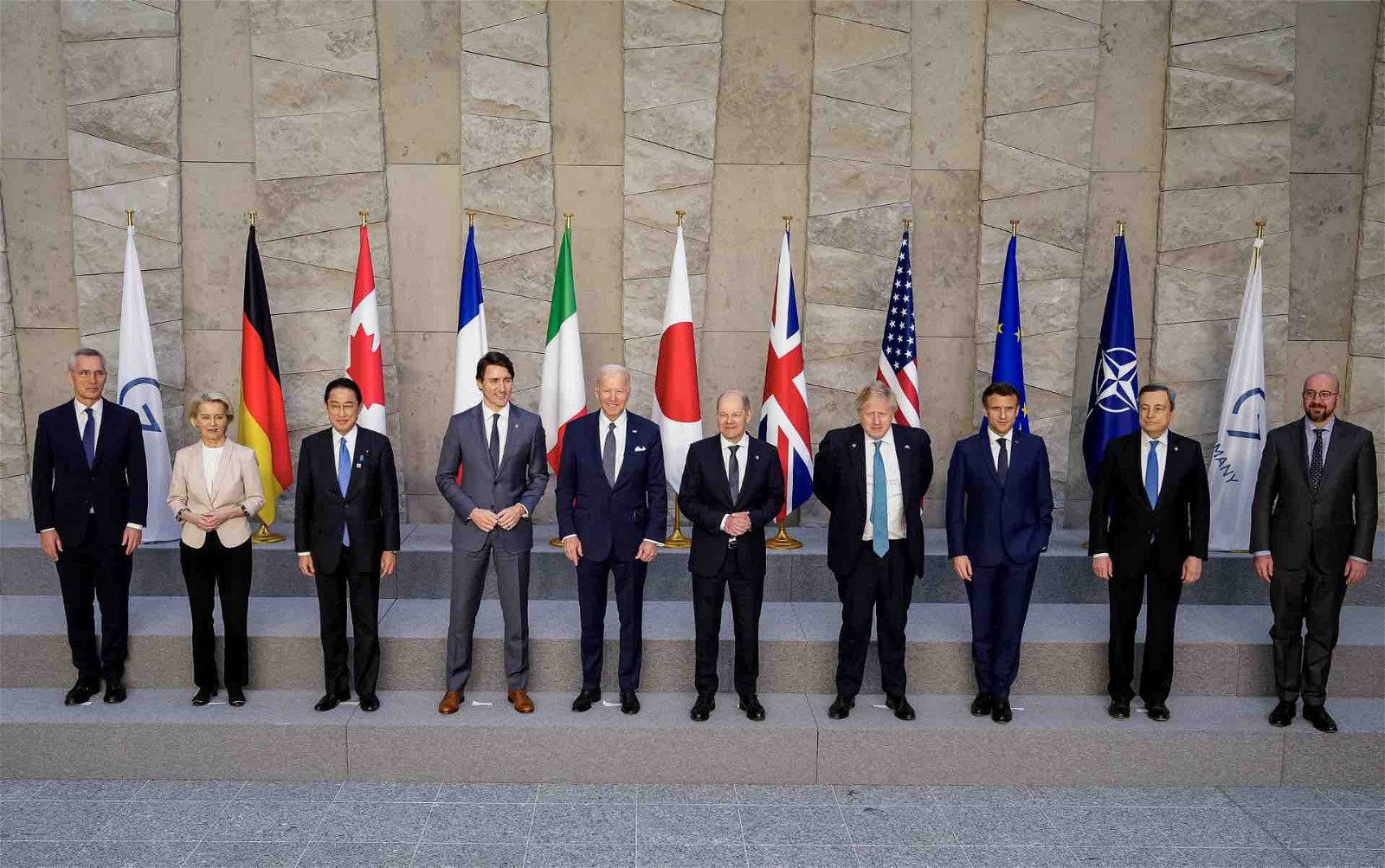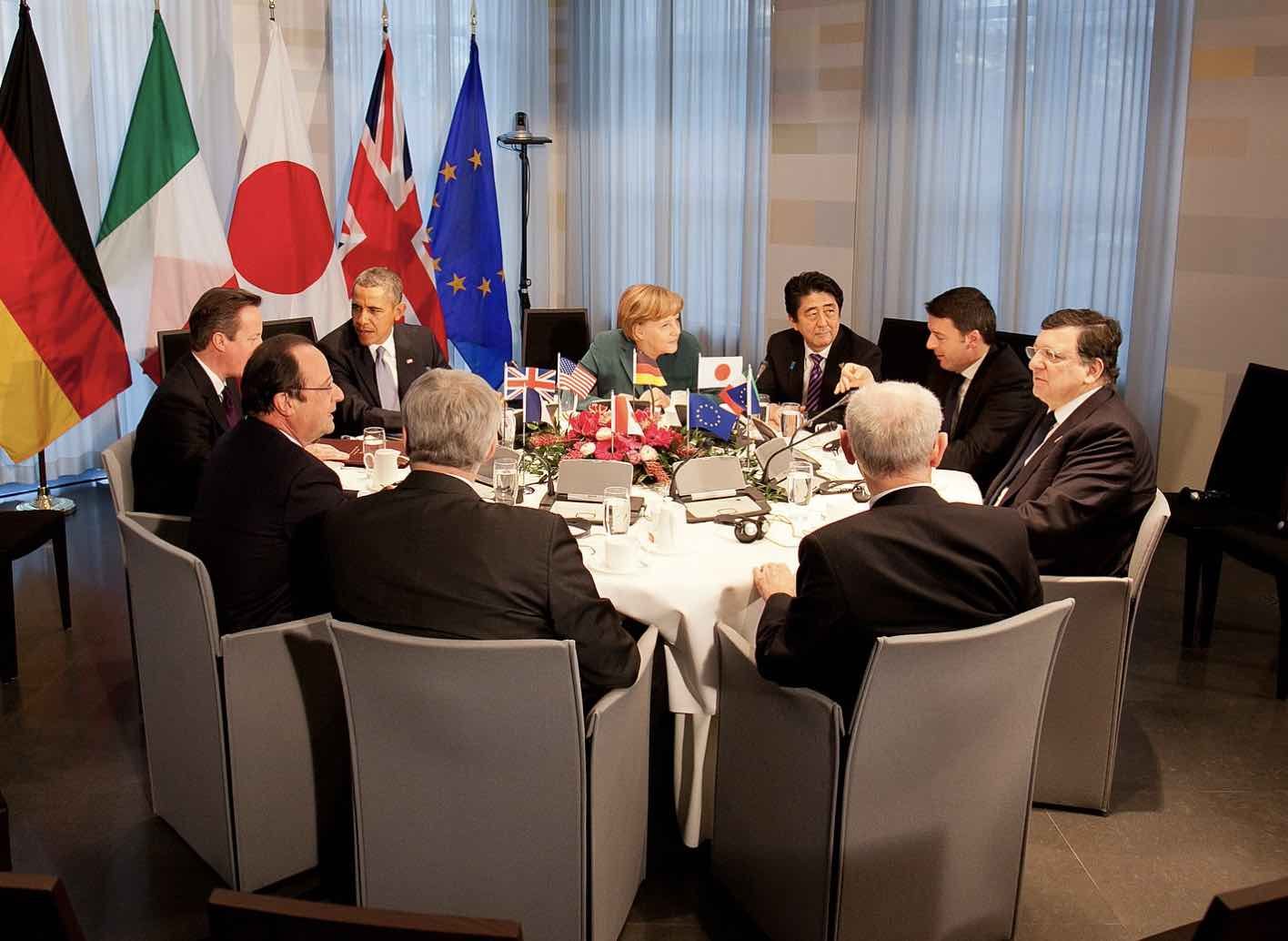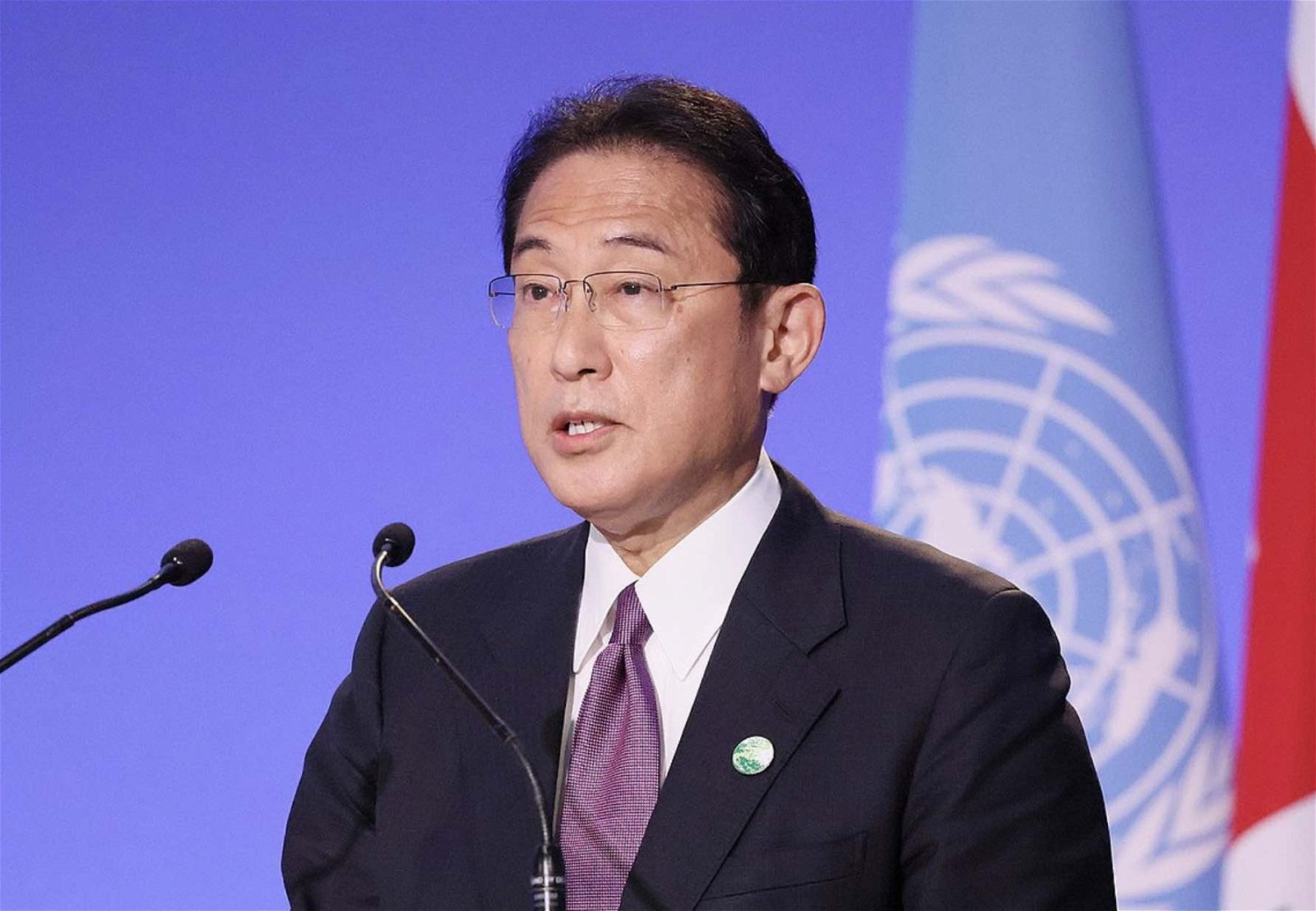

Welcome to this week’s installment of The Intelligence Brief… as world leaders prepare to convene this weekend for the annual G7 Summit, we’ll be analyzing 1) the meeting location, significance, and other details about this year’s summit, 2) a bit of history about the event, 3) main topics that are expected to be the focus of discussion among world leaders, and 4) the issue of nuclear proliferation with relation to this year’s Summit.
Quote of the Week
“The G7 is based on key, shared fundamental values, including a commitment to maintain international order.”
-Fumio Kishida
Latest Stories: A few of the stories we’re covering this week at The Debrief include how the AFRL says a recent demonstration of its Tactical High-power Operational Responder (THOR) against drone swarms was a complete success. Elsewhere, sightings of UFOs may challenge our entire worldview, but the facts are too compelling to ignore, and they’re not going away. Professor of philosophy Michael Glawson, Ph.D., offers perspectives on common assumptions we have about UFOs, and why they need to change. As always, you can get links to all our latest stories at the end of this week’s newsletter.
Podcasts: This week in podcasts from The Debrief, MJ Banias is joined by guest co-host Micah Hanks to talk about new anomaly detecting AI, the new updates being made to the nuclear arsenal by the US military, and a mysterious new Chinese spacecraft that just spent 276 days in orbit on The Debrief Weekly Report. Meanwhile, this week on The Micah Hanks Program, we dive into the strange history involving what is popularly known as “The Black Knight Satellite” and how a genuine scientific anomaly first detected in the 1920s helped give rise to theories about possible evidence of alien technologies in Earth’s orbit. You can subscribe to all of The Debrief’s podcasts, including audio editions of Rebelliously Curious, by heading over to our Podcasts Page.
Video News: Recently on Rebelliously Curious, Chrissy Newton sat down with John Gruener, a space scientist from NASA’s Astromaterials Research and Exploration Science (ARES) Division, explains why lunar soil is crucial for future human missions to the Moon, and shares his passion for space farming. Also, if you missed the first installment of our all-new series “Ask Dr. Chance,” be sure to check out the first episode, and episode two airing in the weeks ahead. You can also watch past episodes and other great content from The Debrief on our official YouTube Channel.
With all that behind us, its now time to take a look at what to expect as world leaders convene this weekend at what is likely to be another historic gathering at the forthcoming G7 Summit in Japan.
World Leaders Meet in Japan for the G7 Summit
This weekend, leaders from seven nations will be convening in Hiroshima, Japan, for the Group Seven (G7) summit, one of the world’s highest-profile political forums.
Consisting of leaders from leading industrial nations outside the former communist bloc, leaders in attendance will represent the US, Japan, the UK, France, Germany, Canada, and Italy.
Held at the site of the first attack involving atomic weaponry which ended the Second World War, attendees will discuss a range of global issues, including nuclear proliferation and the ongoing crisis in Ukraine.
The G7: Background
The Group of Seven, which has gathered since 1975 (with a similar informal meeting occurring as early as 1973) has emerged as one of the leading formal venues for the coordination and problem-solving related to issues impacting the world.
From economics and security to trade, military relations, and the global effects of climate change, the G7 allows an opportunity for world leaders to engage in discussion on a range of diplomatic issues facing all nations around the world, including countries that are not represented at the event.


Although G7 officials often meet at various times throughout the year, the G7 Summit is an annual meeting held at different locations each year, selected from one of the representative countries.
Hiroshima was selected for this year’s event on account of it being Japan’s turn to host the gathering and because it is the hometown of Japanese Prime Minister Fumio Kishida.
Topics To Be Addressed at the G7
Chief among issues being addressed at this year’s G7 includes the ongoing crisis in Ukraine.
Russia’s invasion of the country last spring marked a turning point in the dynamic of 21st-century geopolitics, the effects of which have been evident in the global economy. Decades ago in 1998, Russia had for a time joined the group of countries recognized as members, elevating its number to eight; however, the G8 thereafter expelled Russia in 2014 following its annexation of Crimea.


Along with condemnation of Russia’s invasion, the leaders in attendance at this weekend’s G7 Summit are expected to pledge their ongoing support of Ukraine. Apart from Russia’s actions, the G7 leaders will also address mounting concerns over China and its posture toward Taiwan, as well as issues related to China’s influence on the global economy.
Nuclear Proliferation
The selection of Hiroshima is anything but random, as the southwestern Japanese city’s intimate role in the history of nuclear proliferation has become emblematic of efforts to curb the threat of future loss of life resulting from atomic warfare.
In addition to addressing the challenges presented by Russia’s ongoing threats involving the use of nuclear weapons, Japan hopes to bolster its own pledges to nuclear disarmament and how they are viewed in the international community.


“I believe the first step toward any nuclear disarmament effort is to provide a first-hand experience of the consequences of the atomic bombing and to firmly convey the reality,” Kishida said last week, accompanying an announcement that he planned to bring world leaders in attendance to Hiroshima’s Atomic Bomb Museum, marking the first such group visit by world leaders that are also nuclear superpowers.
Plans have also been outlined to visit a memorial for Korean victims of atomic weaponry in acknowledgment of Japan’s ongoing effort to improve its historically conflicted relationship with the country.
International Attendance
Although he will not attend the event in person, Ukrainian President Volodymyr Zelenskyy will join remotely through a video call during a session where he is expected to address the G7 leaders and others in attendance.
Other countries that have been invited include Brazil, Australia, India, South Korea, and several others. In a statement, Japanese Prime Minister Kishida emphasized the significance of G7 countries networking and communicating with other countries around the world, especially developing nations.
That concludes this week’s installment of The Intelligence Brief. You can read past editions of The Intelligence Brief at our website, or if you found this installment online, don’t forget to subscribe and get future email editions from us here. Also, if you have a tip or other information you’d like to send along directly to me, you can email me at micah [@] thedebrief [dot] org, or Tweet at me @MicahHanks.


Here are the top stories we’re covering right now…
- Air Force Research Lab’s Awesome Directed Energy Prototype Dominates Enemy Drone Swarm in Simulated Attack
The AFRL says a recent demonstration of its Tactical High-power Operational Responder (THOR) against drone swarms was a success.
- It’s Time To Rethink Some Common Assumptions About UFOs
Sightings of UFOs may challenge our entire worldview, but the facts are too compelling to ignore, and they’re not going away.
- Potential New Keys to Anti-Aging and Regeneration Revealed in “Zombie” Cells of Salamanders
Growing evidence suggests that senescent cells could play a much more significant role in the remarkable anti-aging and regenerative capabilities some organisms display.
- DARPA is Planning to Unleash New Extreme Heat Sensors That Could Revolutionize the Defense Industry
DARPA has announced it is developing a new variety of microelectronic sensors capable of maintaining high bandwidth and high-dynamic range even in the hottest environments.
- Introducing the X-65: DARPA Reveals New Name and Concept Art of Its Innovative X-Plane Aircraft
DARPA has announced the official designation of its innovative new X-plane, the X-65, along with new conceptual images it shared on social media.
- Forget Vacuuming. This Robot Will Find Your Keys, Your Phone, and the TV Remote
The University of Waterloo researchers say they have developed a “super finder” robot that uses a camera and artificial intelligence to help people with dementia and either memory-related disabilities keep track of everyday items they can regularly lose.
- Breakthrough in Teaching Hard Physics to Neural Networks Reported by Los Alamos Physicists
Scientists with the Department of Energy’s Los Alamos National Laboratory say they have produced a new method that allows them to introduce hard physics constraints to the structure of neural networks.
- Will Your Home Be Hit by a Meteorite?
Could your home be hit by a meteorite? It isn’t a frequent occurrence… but that doesn’t mean it never happens.
- Mysterious Infrasound Signals of Unknown Origin Detected in Earth’s Stratosphere Baffle Scientists
A mysterious infrasound signal has been detected in Earth’s upper atmosphere, and U.S. Department of Energy scientists say they are currently unsure of its source.
- This Sci-Fi Looking Handheld Railgun May Be China’s Non-Lethal Weapon of the Future
The Official Chinese Government Media is reporting that they have developed a handheld railgun with some impressive performance claims.
- Now, I Am Become AI, the Destroyer of Worlds This week on The Debrief Weekly Report…
SUBSCRIBE TO ‘THE DEBRIEF WEEKLY REPORT’: Apple Podcasts | Spotify Join guest host Micah Hanks and MJ Banias this week as they discuss the latest news from The Debrief. On this week’s episode, Micah and MJ speculate how the world will end. Will it be this new anomaly detecting AI that will undo humankind, or the new updates being made to the nuclear arsenal by the US military? Add to the list a mysterious new Chinese spacecraft that just spent 276 days in […]
- Would You Press a Button on an Extraterrestrial Gadget?
If you were to recover an extraterrestrial gadget, would you press its buttons?
- New National Defense Science and Technology Strategy is Released by the DoD
This week we take a look at the DoD’s National Defense Science and Technology Strategy (NDSTS), outlining the Pentagon’s most urgent science and technology goals and other priorities.
- James Webb Space Telescope Directly Measures Light from Sub-Neptune Exoplanet for the First Time
For the first time ever, researchers using the James Webb Space Telescope have successfully measured the light coming from a sub-Neptune-sized exoplanet that orbits a star only 40 light years away.
- From Rocks to Regolith: Recreating the Lunar Surface for Future NASA Missions
In this podcast, John Gruener, a space scientist from NASA’s Astromaterials Research and Exploration Science (ARES) Division, explains why lunar soil is crucial for future human missions to the Moon, and shares his passion for space farming.
- Lost: Missing Persons, UAP, and High Strangeness
We take a critical look at several modern disappearances and the purported strangeness that is often associated with such incidents, along with what U.S. crime statistics say.